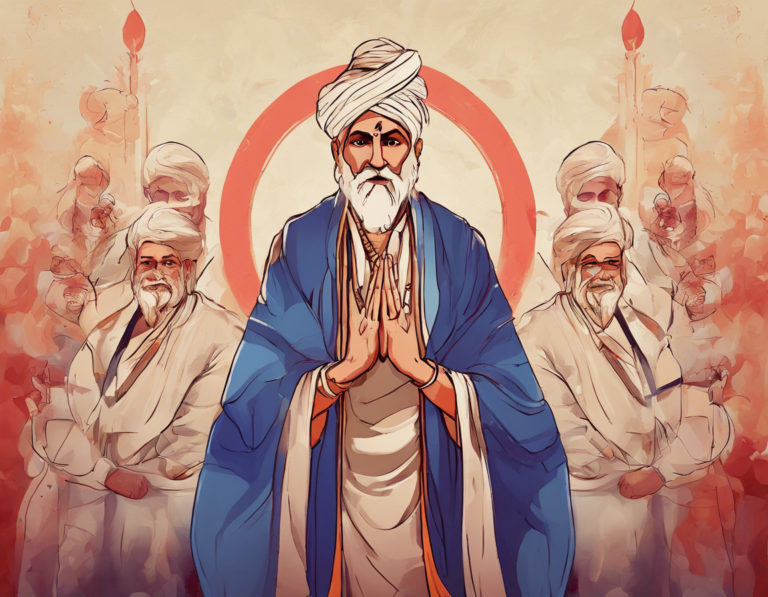
Introduction
Kabir, the 15th-century Indian mystic poet and saint, is renowned for his profound wisdom and spiritual teachings encapsulated in Kabir Ke Dohe – a collection of couplets that delve into the complexities of life, relationships, morality, and spirituality. These timeless verses offer insights into the nature of existence and guide individuals on a path of self-realization and spiritual awakening. In this article, we will explore the essence of Kabir Ke Dohe, deciphering their meanings, and unraveling the relevance of his teachings in the modern world.
Understanding Kabir Ke Dohe
Kabir’s poetry is characterized by its simplicity, yet profound philosophical depth. The Dohe, which are generally composed of two lines, are written in a language that resonates with people from all walks of life. The verses are imbued with metaphors, analogies, and paradoxes that challenge conventional thinking and inspire contemplation.
One of the central themes in Kabir’s poetry is the concept of oneness – the idea that all of creation is interconnected and that the divine resides within every being. This spiritual philosophy emphasizes the unity of all religions and the universal brotherhood of humanity. Kabir urges individuals to look beyond external differences and realize the inherent divinity that unites them with the cosmos.
Key Teachings of Kabir Ke Dohe
-
Detachment and Renunciation: Kabir emphasizes the futility of material possessions and the transient nature of worldly pleasures. He advocates for detachment from material desires and the renunciation of ego to attain spiritual liberation.
-
Love and Devotion: Love is a recurring theme in Kabir’s poetry, symbolizing the intense longing for union with the divine. He extols the power of bhakti (devotion) as a means to transcendental bliss and spiritual fulfillment.
-
Equality and Social Justice: Kabir denounces the caste system, religious hierarchy, and social divisions that create barriers between people. He preaches equality, compassion, and empathy as the foundation of a harmonious society.
-
Self-Realization and Enlightenment: Through introspection and self-inquiry, individuals can attain self-realization and enlightenment. Kabir emphasizes the importance of meditation, self-awareness, and inner transformation as vehicles for spiritual growth.
Relevance of Kabir’s Teachings Today
In a fast-paced, materialistic world fraught with conflict and strife, Kabir’s teachings offer solace, guidance, and wisdom. His philosophy of simplicity, humility, and love resonates with individuals seeking meaning and purpose in their lives. The following points highlight the relevance of Kabir’s teachings in the contemporary context:
-
Stress Relief and Mental Well-being: The timeless wisdom of Kabir Ke Dohe provides solace and comfort in times of stress and uncertainty. By reflecting on the impermanence of life and cultivating inner peace, individuals can alleviate anxiety and enhance their mental well-being.
-
Promotion of Harmony and Unity: Kabir’s message of unity and brotherhood transcends cultural, religious, and social boundaries. In a world rife with conflict and division, his teachings promote harmony, tolerance, and mutual respect among diverse communities.
-
Ethical and Moral Guidance: The moral precepts embedded in Kabir’s poetry serve as a moral compass for ethical decision-making. By upholding values such as truth, integrity, and compassion, individuals can navigate moral dilemmas and lead a virtuous life.
-
Spiritual Awakening and Transformation: Kabir’s teachings inspire individuals to embark on a journey of self-discovery and spiritual transformation. By delving into the depths of their consciousness and cultivating spiritual practices, individuals can attain higher states of awareness and enlightenment.
Frequently Asked Questions (FAQs)
- Who was Kabir, and why is he revered as a saint and poet?
-
Kabir was a 15th-century Indian mystic poet and saint known for his spiritual wisdom and devotion to the divine. He is revered for his teachings on oneness, love, and equality.
-
What are Kabir Ke Dohe, and why are they significant?
-
Kabir Ke Dohe are a collection of couplets composed by Kabir that encapsulate his philosophical teachings. They are significant for their simplicity, depth, and timeless relevance.
-
What are some key themes in Kabir’s poetry?
-
Some key themes in Kabir’s poetry include oneness, detachment, love, equality, and self-realization. These themes explore the nature of existence and the path to spiritual enlightenment.
-
How can Kabir’s teachings help individuals in their daily lives?
-
Kabir’s teachings can help individuals find inner peace, cultivate empathy, make ethical choices, and embark on a journey of self-discovery. They offer guidance for navigating life’s challenges with wisdom and grace.
-
Where can I find translations of Kabir Ke Dohe in English?
- Translations of Kabir Ke Dohe in English are available in various books, websites, and online platforms. Renowned scholars and translators have rendered Kabir’s poetry into English, making it accessible to a global audience.
In conclusion, Kabir Ke Dohe stand as a beacon of light in a world shrouded in darkness, offering timeless wisdom and spiritual guidance to seekers of truth and enlightenment. By delving into the depths of Kabir’s poetry, individuals can uncover profound insights into the nature of existence and embark on a transformative journey of self-realization and spiritual awakening.